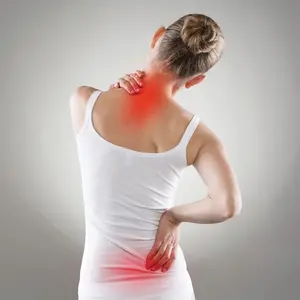

Chronic Conditions and Diseases

Chronic Conditions and Diseases
Exercise as Cancer Medicine
It is well-known exercise has many benefits, but new research from Edith Cowan University (ECU) in Western Australia has found that exercise is even beneficial for people with advanced cancer.
Previous work from ECU’s Exercise Medicine Research Institute (EMRI) has shown men with advanced prostate cancer can change the chemical environment of their body over six months of exercise training to suppress growth of cancer cells. The team observed increased levels of proteins called “myokines,” which are produced by skeletal muscles and can suppress tumor growth and even help actively fight cancerous cells by stimulating a range of anti-cancer processes in the body.
A new EMRI study has shown a single bout of exercise can elevate myokines even further and induce additional cancer suppression. Importantly, this exercise induced medicine occurs in patients with incurable, advanced cancer in patients who have already received extensive treatment over many years.
Nine patients with late-stage prostate cancer performed 34 minutes of high intensity exercise on a stationary cycle, with blood serum collected immediately before and after, and then again 30 minutes post-workout. The team found the serum obtained immediately after this “dose” of exercise contained elevated levels of anti-cancer myokines resulting in suppressed growth of prostate cancer cells in vitro by around 17%. Serum myokine levels and cancer suppression returned to baseline after 30 minutes.
EMRI researcher and study supervisor Professor Rob Newton said it was a breakthrough moment in exercise oncology. “The findings from our work are particularly exciting because we report for the first time ever that men with advanced prostate cancer are able to produce an acute elevation in anti-cancer molecules called myokines in response to a single bout of vigorous exercise,” he said.
“This is helping us to understand why patients with cancer who exercise exhibit slower disease progression and survive for longer.”
“These patients are palliative, so there is no cure and they will eventually succumb – however, there is evidence that exercise will extend survival and the increased myokine levels explored in our recent paper is a prime mechanism.”
Professor Newton said while there is much research still to be done, the results of this study could help shape the advice given to cancer patients immediately. “The optimal dose of exercise is not yet known, but it is likely to be 20-plus minutes each day and must include resistance training to grow the muscles, increase the size and capacity of the internal pharmacy, and stimulate the myokine production,” he said.
“This study provides strong evidence for the recommendation patients with prostate cancer, and likely anybody with any cancer type, should perform exercise most days, if not every day, to maintain a chemical environment within their body which is suppressive of cancer cell proliferation.”
REFERENCES
Edith Cowan University. (2022, December 14). Exercise is medicine for cancer and every dose counts – even in late stages of the disease. https://www.ecu.edu.au/newsroom/articles/research/exercise-is-medicine-for-cancer-and-every-dose-counts-even-in-late-stages-of-the-disease
Kim, J., et al. (2022, November 29). Acute effect of high-intensity interval aerobic exercise on serum myokine levels and resulting tumour-suppressive effect in trained patients with advanced prostate cancer. Prostate Cancer and Prostatic Diseases. https://www.nature.com/articles/s41391-022-00624-4


 By
By







